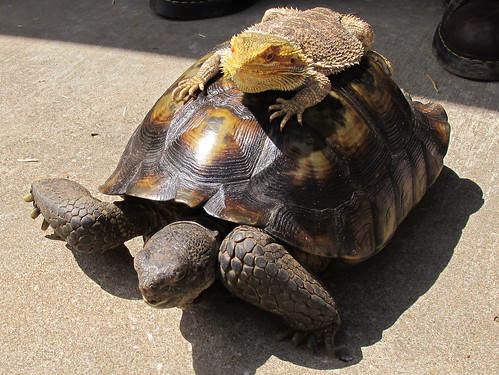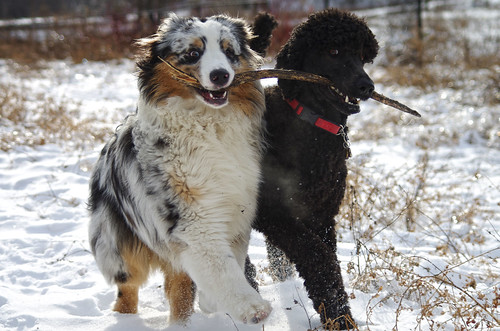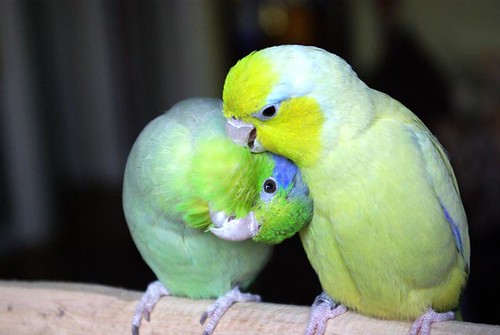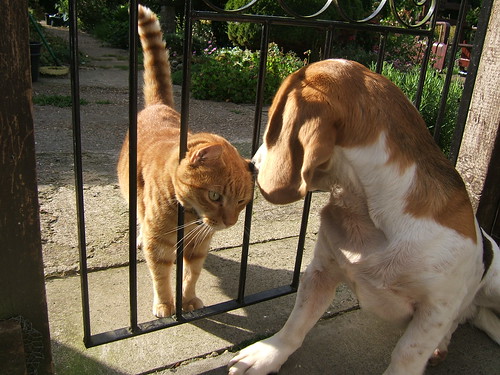As you're about to read, writing is one of my biggest "new" goals for 2016.
In my life as a corporate trainer, coach, and project manager, it has been my privilege to help other people create and stick to S.M.A.R.T. goals.
I know. Everyone is groaning and closing their browser on my blog post right now. Especially anyone who has ever been a manager. But I truly find S.M.A.R.T. goals useful. I offered to write up what the acronym means and an example of how to use it for my local women writers group, and I'm re-purposing that offer as a blog post.
What you will also see below is my personal example of goal setting for 2016. Because that is text-heavy and Bo-RING, I'm going to capture images from a new tool that I was invited to use by one of my writing and costuming heroes,
Mary Robinette Kowal. If Mary says something helps her, I give it a go, and this year that means
Habitica.com.
This isn't a plug for the app, but I can say that where I personally have always fallen down on using S.M.A.R.T. goals is in the iteration and CONSTANT VIGILANCE required to achieve them. I'm now using Habitica for that, and so far, I love it.
I also offered to write a bit about ways to ask for and offer support, to what one of my groups is calling "accountabilibuddies." It rolls off the tongue like supercalifragilisticexpealidocious, but is a noun, not an adjective or an exclamation. Watch for that as a followup tomorrow.
SMART Goals
S = Specific
M = Measurable
A = Accountable
R = Realistic
T = Time phased
The reason to break goals down into a short paragraph that addresses each of these criteria is to ensure that goals aren’t too big and impossible, nor too small and insignificant. Just like a novel, an article, or a story, to set successful goals, first we do our pre-work.
For example, my general goal might have started out as “Do more blogging and get published.” That’s nice. Nice Goal. Hey...Back...Stay Back...NICE GOAL...GOOD GOAL…OMG IT’S GOING TO FALL ON ME, HELP!!!!
This is what happens to big, non-specific goals. THEY CRUSH YOU.
So ask your 5 Ws + 1 H, and then add your sensory/somatic questions: Who, Why, What, When, Where, How, See, Smell, Taste, Touch, Hear
Who - I WILL blog more and get published. I will need the SUPPORT of my husband, a writing group, an editor, my friends. All of these people are a part of whether or not I reach my goal.
Why - This goal is important to me because the career of writer appeals to me. [If I was my coach, I would make me expound on this. Trust me I have elsewhere]
What - Blogging means public posts that anyone with internet access can see. Being published means someone read something I have written and paid me (anything) to use it in a publication.
When - In 2016
Where - N/A (It is ok to skip things that don’t seem relevant. All the questions will not apply to every goal)
How - By writing every day and participating in writing groups.
See - When I achieve my publication goal(s) I will see an acceptance email and a contract. Then see my writing online or in print in an uneditable format. Not my blog; Can’t go back and edit ink on paper. When I achieve the blogging goals, I will see more entries in 2016 than I had in 2015.
Smell - N/A, but get more creative than I did here and TRY to come up with a sensory outcome for your goals.
Taste - I will taste the special victory dinner out that will be my reward for a first publication and at every 50 blog posts. I will ask my friend Emily to make me her special cinnamon chocolate cake to celebrate my first $1000. in writing sales.
Touch - The feel of flipping pages in a magazine to see something I have written will FEEL like victory!
Hear - I will hear pieces as I read them out loud prior to submitting them. I will hear my husband say “I’m so proud of you!” and read congratulatory messages from my writer friends.
I’ve taken some time to think about all things that might apply to my goal. Now we can put them into the SMART format. Let’s look at each aspect of the acronym:
S - Specific
From “do more blogging and get published” I already have more specific ACTIONS I will take to reach the big goal:
I will write every day.
I will join a writing group.
I will write blogs and stories/articles.
I will submit to journals and magazines.
Now, as I move on to the next letter, I keep challenging myself with more questions.
M - Measurable
For each action toward the goal, ask, “How will you measure this?”
I will write every day. (When? Where? How many Words? How much time? How many publications?)
I will join a writing group. (How will you find one? How will you measure that you are in one?)
I will write blogs and stories/articles. (Where will you keep your list of ideas for your writing? How often will you do prompt writing, read other blogs, or find fodder for what you want to write?)
I will submit to journals and magazines. (How will you find markets for your work?)
Now the Actions have become:
I will write every day: New content, including my warm up, morning pages, prompts, and tarot in the morning when I’m ‘dreamy,’ and edit existing content when I’m fully awake.
I will join a writing group at Meetup.com, MRK FB Group, and meet local writers via participating in NaNoWriMo.
I will write blogs and stories/articles beginning with the backlog of incomplete stories and travel from 2013 - 2015. The list of drafts is in a Writing folder on my laptop and ready to submit stories will be kept in DuoTrope, where I will track my submissions.
I will submit to journals and magazines that I find using DuoTrope, Freedom With Writing and FB groups that alert about writing contests.
A - Accountable
For each action toward the goal, ask, “How will you be accountable for this?”
Now the Actions are:
I will write every day: New content, including my warm up, morning pages, prompts, and tarot in the morning when I’m ‘dreamy,’ and edit existing content when I’m fully awake. I am accountable to myself, but I will also track whether or not I wrote using Habitica.com and have many journal entries as evidence.
I will join a writing group at Meetup.com, MRK FB Group, and meet Local writers via NaNoWriMo, and find an accountabilibuddy to externally motivate me.
I will write blogs and stories/articles beginning with the backlog of incomplete stories and travel from 2013 - 2015. The list of drafts is in a Writing folder on my laptop and ready to submit stories will be kept in DuoTrope, where I will track my submissions. I will track via habitica.com and my accountabilibuddy.
I will submit to journals and magazines that I find using DuoTrope, Freedom With Writing and FB groups that alert about writing contests. I will track via habitica.com and my accountabilibuddy.
As I mentioned at the start, this is my weakest area of every S.M.A.R.T. goal I've ever made.
Enter Habitica!
What I find very useful is the way Habitica categorizes things as "Dailies" "Habits" and "To-Dos." Joining a writing group is a To-Do because I only do it once. On the other hand, submission might only happen one time, but it involves steps, and Habitica lets me break them out into a checklist:
Writing a certain amount every day is an ongoing habit. Every day I do better, or worse, so habits have +/-. Habitica lets me log wordcounts, which will differ from day-to-day:
But writing EVERY day is a Daily - I lose life-force points if I don't do at LEAST my morning pages:
If you're motivated by checking things off of lists and you need a place to keep ALL the things you need to do, gamifying your life might be a fun thing to try for 2016.
R - Realistic
For each action toward the goal, ask, “Is this Realistic? What could PREVENT this action from happening?”
Problem solve any challenges. Now the Actions are:
[EVERY day? Really?! What about Vacation? Weddings? Funerals? When you’re sick?] I will plan to write every day, but have compassion and forgiveness for myself if it doesn’t happen. If I am really excited about an existing piece, or on a deadline, I give myself permission to prioritize my writing each day. Generally following the pattern of new content, including my warm up, morning pages, prompts, and tarot in the morning when I’m ‘dreamy,’ and editing existing content when I’m fully awake, are the actions I will take to meet my goal. I am accountable to myself, but I will also track whether or not I wrote using Habitica.com and have many journal entries as evidence.
[What if your group breaks up? What if your group hates what you write?] I will join a writing group at Meetup.com, MRK FB Group, and meet local writers via NaNoWriMo, and find an accountabilibuddy to externally motivate me. I will work with people who inspire and support me and I will leave the group if it is hindering my goal instead of helping.
[You have too many stories to work on! What if you get writer’s block? What if all your stories suck? How will you pick?] I will write blogs and stories/articles beginning with the backlog of incomplete stories and travel from 2013 - 2015. I will pick a market FIRST, and then look through my stories that seem to meet the needs of a contest or publication. The list of drafts is in a Writing folder on my laptop and ready to submit stories will be kept in DuoTrope, where I will track my submissions. I will track via Habitica.com and my accountabilibuddy.
[What if you only get rejections for everything you submit?] SUBMISSION COUNTS. BLOG POSTS COUNT. Because the core of the goal is “more” I only have to beat my own prior year record (49/0 respectively). Two items per month feels realistic. I will submit to journals and magazines that I find using DuoTrope, Freedom With Writing and FB groups that alert about writing contests. I will track via Habitica.com and my accountabilibuddy.
T - Time Phased
For each action toward the goal, ask, “When will you do this? BY WHEN will this be complete?”
Now the Actions are:
I will plan to write every day, but have compassion and forgiveness for myself if it doesn’t happen. If I am really excited about an existing piece, or on a deadline, I give myself permission to prioritize my writing each day. I will generally follow the pattern of new content, including my warm up, morning pages, prompts, and tarot in the morning when I’m ‘dreamy’ from 7-8AM (7hrs/wk), which I will put on my Google Calendar and make a Habit for in Habitica. Editing existing content will happen when I’m fully awake, Tue - Fri, 10AM - noon (8hrs/wk), which I will put on my Google Calendar and make a Habit for in Habitica. I am accountable to myself, but I will also track whether or not I wrote using Habitica.com and have journal entries and submissions as evidence.
Before January 1, 2016, I will join a writing group at Meetup.com, MRK FB Group, and meet Local writers via NaNoWriMo, and find an accountabilibuddy to externally motivate me. I will work with people who inspire and support me and I will leave the group if it is hindering my goal instead of helping.
I will write blogs and stories/articles beginning with the backlog of incomplete stories and travel from 2013 - 2015. I will pick a market FIRST, and then look through my stories that seem to meet the needs of a contest or publication. The list of drafts is in a Writing folder on my laptop and ready to submit stories will be kept in DuoTrope, where I will track my submissions. I will track Market Research, Story Editing/Critique, and all the habits via Habitica.com and my accountabilibuddy.
By the 15th and 30th of each month I will have updated my blog and DuoTrope.com. Submissions all count, and blog posts count. Because the core of the goal is “more” I only have to beat my own prior year record (49/0 respectively). Two items per month feels realistic. I will submit to journals and magazines that I find using DuoTrope, Freedom With Writing and FB groups that alert about writing contests. I will track via habitica and my accountabilibuddy.
If you happen to ask me what my writing goals are for 2016, will I read you this 1500+ words of exposition? No. Way. Besides there are whole other chunks of write-ins and time listening to Writing Excuses that aren't even included in here. But from the work I’ve done, I have my elevator pitch which is specific, measurable, accountable, realistic, and time phased:
I will work on writing for at least 15 hours a week, and complete 2 finished pieces of writing each month. Blog entries or submissions to paid markets both count towards my goal.
And if anyone asks, I can expand on questions like…
How are you going to do that?
Where will you get your ideas?
What tools will you use?
...because I’ve REALLY THOUGHT ABOUT IT!!









